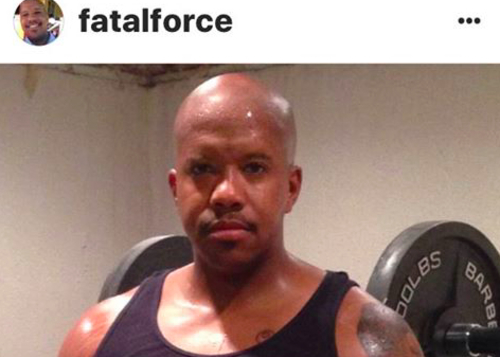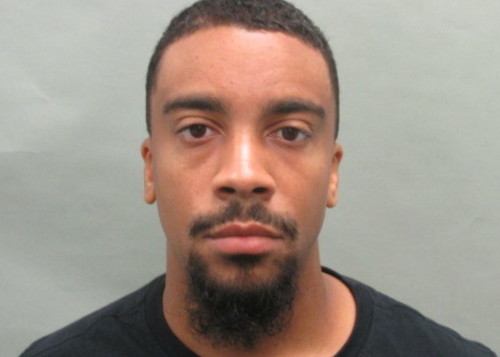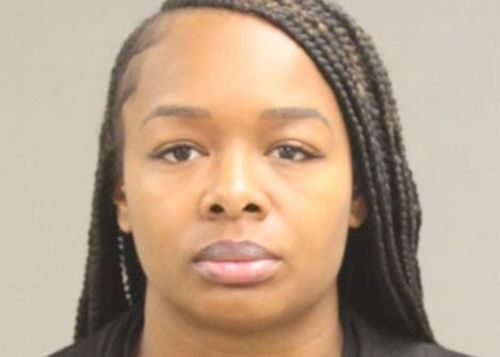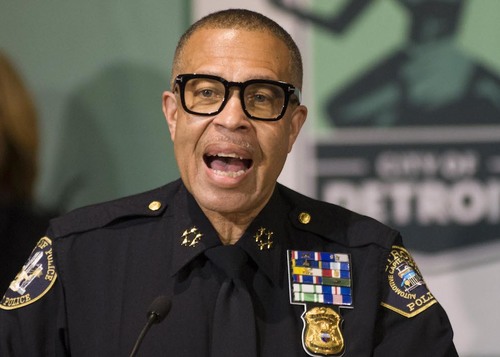
Collage by Lee DeVito
By the time Detroit police officer Rochelle Mayberry was arrested for ditching a $530 restaurant bill on Mother’s Day 2019, she’d set off numerous alarms inside the department.
Her 15 misconduct incidents in less than three years on the force were triple that of the average Detroit officer. Among other things, investigators found she’d kicked and shoved a homeless man who posed no threat, “placed her hands in a choking position around the neck” of a handcuffed woman, and threatened a man in a wheelchair, seemingly annoyed he needed help.
“The department must … curtail her behavior before her actions result in criminal and civil litigation,” the risk-management unit’s Sgt. Lonnie Lowery-Ross urged in a memo several months before Mayberry’s headline-grabbing dine-and-dash. “The loss of citizen trust and respect due to her actions is immeasurable.”
Until then, every layer of the internal oversight system the department assures can curb problem cops had failed to address Mayberry. Misconduct investigations were rendered “ineffective” by her “evasiveness,” Lowery-Ross wrote. Disciplinary decisions were slashed by commanders on appeal. Interventions fell short as supervisors failed to keep up on them.
The department did not get rid of Mayberry when she accumulated 12 citizen complaints as a probationary officer subject to swift removal. It passed up a separate opportunity in March 2018, inexplicably helping overturn a finding of lying on the eve of what was to be her termination hearing.
And it eventually ignored Lowery-Ross’ warning, essentially granting the troubled cop a promotion within weeks of his review. In February 2019, then-Chief James Craig approved Mayberry’s request for transfer to the department’s homicide unit, effective immediately. Her downfall came only after it emerged she’d lied to him about her qualifications to get there, concocting a story about a University of Michigan degree she did not possess, in a major the school does not offer.
This is how the Detroit Police Department handles some of its worst cops. In the wake of a painstaking 13 years of federal oversight, it still struggles to remove or rehabilitate them, costing taxpayers while jeopardizing lives and public trust.
The findings come from a 16-month Deadline Detroit investigation into the department’s handling of a sampling of 10 criminally charged officers who exhibited red flags long before their arrests. Officers were able to remain on the streets despite track records of abuse, lies, wrongful searches and other problems, shielded by an internal oversight system stacked in their favor.
The consequences were at times grave: Twice, officers involved in vehicular chases that violated policy were not re-trained and faced limited or no discipline, only to reoffend within months in chases that killed two children and a teen. One of those officers, Stephen Heid, was restored to full duty despite attempting to cover up his deadly chase and committing misconduct in relation to three crashes in the preceding two years. His termination was overturned in 2019 by now-Chief James White.
Our review of more than 10,000 pages of disciplinary and investigative records obtained through open records requests found that lax enforcement, strong union protections and internal bias create a perpetuating cycle of limited accountability:
• An officer code of silence and internal investigators who absolve colleagues even when evidence points to wrongdoing make it less likely bad actors will be found out.
• In the rare instance misconduct is found and discipline issued, department leaders reduce or dismiss it 75 percent of the time. The decisions are made at closed-door appeal hearings provided under the police union contract, often with no documented rationale.
• Written reprimands become the most commonly issued form of discipline. They’re erased within two years under a separate union contract provision, leaving officials who decide future penalties unaware of the full scope of an officer’s problematic conduct.
• Interventions designed to capture officers who’ve slipped through the porous system are also hampered by lax enforcement and rarely bring closer monitoring.
• Troubled officers are at times promoted, becoming supervisors who set poor examples and look the other way on misconduct by subordinates.
Deadline Detroit’s review “suggests the system is just deeply broken and … officers are getting let back on the street without the proper corrective action,” said Jonathan Smith, who from 2010 to 2015 led the section of the U.S. Department of Justice that entered into two consent decrees with DPD after finding a “pattern or practice” of civil rights abuses. “The risk to people in the community is very, very high.”
Department data shows officers faced discipline more than 300 times in each of the past two years, which accounts for up to 13 percent of the force per year. Smith called that number “ee-noor-mous,” drawing out the vowels for emphasis. It does not include misconduct that initially resulted in informal counseling, which is not considered discipline.

James White, a 24-year DPD veteran, replaced James Craig as chief in June 2021. (File photo)
Police officials did not respond to the totality of our findings, outlined in an email. In an interview limited to 15 minutes, Assistant Chief David LeValley defended the reduced discipline, saying leaders may have cut penalties due to poorly handled investigations or an officer’s never-before-heard defense. The department and city declined to say whether they’re pushing to renegotiate union provisions that limit accountability ahead of a June 30 contract expiration.
In September, following a WXYZ-TV report on an officer who’d remained on the streets despite amassing 85 citizen complaints, White announced a package of reforms to address a disciplinary loophole for officers with high rates of inconclusive allegations. They involve compiling more thorough histories for officers who commit misconduct and creating intervention plans for those deemed “high-risk.”
Smith called the reforms a remix of existing protocols that are unlikely to have much impact. White, however, has billed them as at the forefront of national police accountability efforts and signaled more comprehensive change is unnecessary.
“Overwhelmingly this situation is being managed effectively,” he said in announcing the reforms to the Board of Police Commissioners. “We’ve got good supervision and we’ve got good officers.”
‘How you wind up with a George Floyd’
The oversight issues have persisted for decades and eluded previous attempts at reform.
Federal consent decrees struck in 2003 due to alleged constitutional violations, including excessive force and illegal detentions, yielded limited results. While fatal shootings and civil lawsuit payouts are down since oversight ended in 2016, Detroit remains one of the worst forces in the country by some metrics, shooting more people per arrest than 97 percent of them, and paying out more for misconduct claims than 89 percent. And despite having escaped the national glare of an unjustified police shooting, it remains scandal-plagued, with 147 officers charged criminally in the past six years.
By the time an officer’s issues spill into open view, they’ve likely already cultivated a lengthy rap sheet that was insufficiently addressed. An initial review of a sampling of 34 officers charged with crimes in the past five years revealed roughly two-thirds had above-average rates of civil suits, citizen complaints, or uses of force. We selected 10 of those officers to examine in detail, with a focus on more recent offenses.
There was Sgt. Lacell Rue, who went unpunished in 2019 even after investigators found he wrongly detained a man who said the officer dropped him off at an unfamiliar location and told him to figure out a way home. “I've done this before,” the victim said Rue told him. “Next time I'm going to have a black van pull up, put you in it, and beat your ass.” Rue was promoted in 2016 despite having been found guilty of misconduct 10 times and repeatedly accused of rudeness and theft. Five subsequent violations, for failing to turn on his body-worn camera or investigate when subordinates allegedly abused citizens, yielded no discipline.
The sergeant was in 2019 charged with felonious assault for shocking a man with a stun gun as he allegedly held up his hands, in a case with limited video evidence because Rue again did not turn on his body camera. Though the trial is pending, last year the department wrapped up its internal case. Should Rue avoid a felony conviction that would result in his automatic removal, he’s expected to face a written reprimand that will disappear from his record.
Then there was officer Chancellor Searcy, who repeatedly escaped punishment in his nine-year career and was criminally charged five times. Searcy was not disciplined after investigators found he lied in a 2010 case in which he was accused of threatening to shoot a mother driving with her toddler. Between 2014 and 2015, he was cleared in nearly a dozen investigations into excessive uses of force or unjustified stops, even as multiple people complained he approached them demanding guns they did not possess.

Chancellor Searcy and Lacell Rue (Photos: Detroit Police Department, Fox 2 video)
Pressure from the prosecutor’s office eventually led to criminal charges that Searcy wrongly seized money or fabricated probable cause in four arrests. Though a jury acquitted him, Searcy was found guilty internally, with investigators determining he and his partner suspiciously used canned phrases like “observed a bulge” as the basis for 300 arrests. “For the most part all criminals do the same things and we try to add extensive details to make it sound a little different,” he said in a text obtained by investigators.
Still, the officer faced no internal punishment and was allowed back on the streets, where he was again criminally charged, for allegedly soliciting women’s phone numbers on the promise they would escape traffic tickets. This time, he resigned, but the deal included two years’ back pay.
Searcy maintains his innocence and believes he was the victim of an oversight apparatus that unfairly targets good cops. “They go after the officers that work as if they’re doing dirt,” he said. “The officers pursuing guns, robbers, dope dealers.” He added that the number of complaints against him paled in comparison to how active he was and that his probable cause was sound.
The other officers mentioned in this story either could not be reached, did not respond to requests for comment, or were prevented by the department from doing so.
The department does not necessarily see them as bad police. Neither Heid nor Rue, with their repeat offenses, are on its “high-risk” list. White has said just five percent of officers are "outliers" worthy of special attention, though a Deadline Detroit analysis of department data found up to 14 percent have at least three times the department average of citizen complaints, uses of force, and civil lawsuits, or some combination thereof.
To activists and civil rights attorneys, the department is minimizing a deep-seated cultural problem and preventing honest discussion about solutions. While poor oversight may fail to curb bad actors, their presence on the force is often blamed on low pay and the hiring of suburbanites to police a majority-Black, low-income city. Others say policing is a fundamentally flawed institution that breeds misbehavior and must be reimagined altogether.
“We have to ask ourselves, are we at a point of paralysis with policing in Detroit?” said Detroit Coalition Against Police Brutality director Chris White, stressing the high stakes in a violent city where many feel they have nowhere to look for help but the police.
“People want more law enforcement, but law enforcement that’s mismanaged causes more problems,” he said. “Mismanagement is the ultimate form of police brutality. It means the people aren’t protected and it’s how you wind up with a George Floyd.”
Blue shield
The first line of defense protecting the public from a bad cop is on the streets, where officers with a front-row seat to wrongdoing are required to report it. Instead, silence is common.
The second is in investigations, where supervisors and internal affairs staff must maintain impartiality to uncover misconduct. They too can shield officers, drawing forgiving conclusions critics say are tainted by blue bias.

Jerold Blanding's Instagram handle was "fatalforce" by the time of his second killing with the department in 2017.
Jerold Blanding’s 24-year tenure with the department was buttressed by this blue code. A former officer who shot five people and cost the city hundreds of thousands of dollars in misconduct settlements, he was the subject of a 2000 Free Press report that found lapses by department investigators helped him escape penalty early in his career.
Nearly two decades later, with federal monitors having come and gone, his colleagues continued to give him the benefit of the doubt.
In late 2017, officers responding to a dispute let Blanding walk after he allegedly punched his girlfriend in the face. Though the woman had a fat lip and Blanding had a documented history of domestic abuse, officers arrested only her, for cracking his windshield.
In a separate incident the same month, officers covered for Blanding after they found him passed out drunk in a car with a gun on his lap while off duty. Though they lied about the stop, logging that they’d encountered a sleeping woman they advised to go home, an investigator found only a “failure to properly document all activity.”
All of the officers who helped Blanding were found guilty of misconduct, but none received more than a slap on the wrist that was eventually removed from their records.
Even though misconduct investigations have a modest burden of proof that requires only a 51-percent likelihood of wrongdoing, most exonerate officers or are inconclusive. Just over 20 percent of citizen complaints investigated by the Board of Police Commissioners’ Office of the Chief Investigator are sustained, while the department says it does not keep data on its own investigations into more serious allegations and uses of force. When officers are found guilty, it’s usually for low-level infractions that result in write-ups or informal counseling.
The findings can be highly questionable.
Take a 2015 force case in which Officer Richard Billingslea stopped a man for carrying a can of beer.
The man, 46, said he’d approached the officer to show the can was unopened when Billingslea slammed him down, causing him to black out and bleed.
There appeared enough evidence to corroborate the claim: A neighbor said he saw an officer push and take the man to the ground, dispatch audio indicated the victim immediately called 911 and reported an assault by police, and investigators determined he’d been hospitalized for his injuries.
In-car audio also suggested Billingslea knew he’d done something wrong. “Back up so he can't get this fucking car number!,” he shouted to his partner. “Don't let him get our fucking car number dude. Back up, back up … hurry up.” Billingslea's partner obliged, speeding off in reverse while laughing. Neither disclosed the encounter, as required.
Billingslea, however, conceded only a benign role in the man’s injuries, claiming he did not push him, but merely put out his hand to stop him from advancing with an object he perceived as a threat. The man then “stumbled and fell.”
An investigator agreed, and Billingslea was exonerated for the use of force and issued only a written reprimand for failing to report the incident and swearing.

Michaelé Jackson and D'Marco Craft, whose phone Officer Richard Billingslea tossed, meet with attorney Solomon Radner. (Photo: Violet Ikonomova)
By 2017, the record had disappeared when Billingslea’s supervisor, Sgt. Randall Craig, recommended that another excessive-force case involving the officer be “closed with no further action.” This time, Billingslea unjustifiably beat and maced an off-duty Detroit bus driver and threw away a cell phone with footage of the attack.
Even though Craig wrote in his report that he’d obtained clear surveillance video showing the incident, he based his investigation almost entirely on dubious officer and witness accounts.
Billingslea falsely told him that bus driver Michaelé Jackson exited his car acting belligerent — “yelling ‘fuck y'all niggas’ over and over” — and approached him “in an aggressive manner with his fist clenched.” Another officer who discovered Jackson’s friend's phone in the trash kept quiet about it.
For Craig, that and two witnesses who mischaracterized the interaction as a fight was enough to find that Billingslea and his partner “acted in accordance with department policy and used good decision-making and proper tactics. Their actions were prudent and judicious in response to the arrest.”
The truth, revealed only after the prosecutor’s office reviewed the surveillance video in a warrant request for Jackson, was that Billingslea attacked the off-duty driver for simply trying to squeeze past him in the store entrance. The officer was convicted of aggravated assault and obstruction of justice and resigned in September 2018. The city has so far spent $155,000 to settle a civil suit over the incident.
“There’s a culture within the department that says you can be violent and people will cover up for you,” said Jackson’s attorney, Solomon Radner. In his client’s case, “every single cop involved, including the sergeant, said Billingslea did nothing wrong. That should tell you everything you need to know about the department.”
Lax enforcement tells cops ‘they can get away with it’
A sunny summer afternoon had lured residents of the Morningside neighborhood outdoors when Billingslea opted to pursue a Camaro because he believed its driver had a gun. The fleeing muscle car reached speeds of 110 miles per hour before careening onto a sidewalk and killing three- and six-year-old Makiah and MichaelAngelo Jackson as they rode scooters. Half a block away, three more children were seriously injured.

Funeral program for MichealAngelo and Makiah. The children were riding scooters when killed by a car chased by Billingslea.
The 2015 incident was Billingslea's second deadly chase to violate department policy in six months. The first, which killed a 25-year-old woman and was initiated over a traffic violation, resulted in no discipline or retraining, even though Billingslea admitted having so little knowledge of the pursuit policy that he could not even say what constituted one. The chase that killed the Jackson children, meanwhile, yielded a 3-day suspension, a penalty lessened to a slap on the wrist on appeal in 2016.
Billingslea repeatedly benefitted from reduced penalties. That same year, after failing to report he’d used force when pulling a man from a vehicle during a traffic stop and throwing him to the ground, the officer saw another 3-day suspension cut to informal counseling, even though he’d failed to report a separate use of force months earlier.
“It’s just wrong,” Makiah and MichaelAngelo’s mother, Alisha Jackson, said when recently informed of the officer’s history by Deadline Detroit. “They want to hold us accountable for what we do, but they don’t hold their officers accountable for what they do. They take a life and they just be out here on the streets.”
In Billingslea’s four years on the force, he played a role in three deaths, at least nine injuries, and was sued five times, costing taxpayers nearly $800,000. Yet, his worst internal punishment was for disobeying orders by letting a pitbull puppy go to a suburban animal hospital rather than Detroit animal control. For that, he was given a three-day suspension, later reduced to two.

Richard Billingslea (Photo: Michigan Department of Corrections)
Though Billingslea resigned in 2018, the department continues to routinely cut discipline, even for egregious and repeat offenses. Of the 628 penalties issued between March 2019 and March 2021, nearly one-fourth were dismissed and half were reduced at appeal hearings, data provided by the department for a civil suit shows. Seven of 23 officers terminated in that period were meanwhile permitted to remain on the force at similar proceedings. Some dismissals are the result of a union contract provision that requires discipline be meted out within a year.
(The city billed Deadline Detroit a prohibitive public records fee of more than $41,000 to obtain the disciplinary information after the department claimed it did not keep it in the aggregate.)
The data is “disturbing,” said Smith, who now runs the Washington Lawyers' Committee for Civil Rights and Urban Affairs. “These numbers are way out of whack.” Only rarely, he said, should the department deviate from the disciplinary matrix used to prescribe punishments.
Department leaders deciding discipline face a conundrum, said Steve Dolunt, an ex-assistant chief who retired in 2017. While they aim to send a message that misconduct will not be tolerated, they must balance it with the need to adjudicate cases quickly and support otherwise “good” officers to maintain morale.
As a result, Dolunt said, they can inadvertently let the wrong cases slide. They may issue lighter punishments to avoid drawn-out appeals to arbitration. And they may find the distinction between good and bad officers blurred by missing records or a tendency to see those with more complaints as harder working.
“Unfortunately, if you don’t address the small cases, they become bigger issues,” Dolunt said. “An officer starts to feel like they can get away with it.”
Union protections hamstring efforts
Dolunt stressed the need for a “more streamlined disciplinary process,” that limits officers’ appellate rights and does not dismiss cases that take longer than a year.
The way things stand, he said, “You’re eroding the public’s confidence, you’re affecting police morale, and sometimes you’re spending a lot of money.”
The officer protections trace back more than half a century to the civil unrest of 1967, whose fallout the Detroit Police Officers Association leveraged for high pay and an officer “bill of rights.”
The 1970 union contract shielded officers with a 3-year limit for some disciplinary records and gave final authority over discipline to an arbitrator, according to The New York Times. In the decades to follow, the protections expanded as wages and benefits shrunk. By 1992, the 3-year limit on disciplinary records, which initially only applied to officers who avoided further trouble in that period, was reduced to two regardless of behavior.
Today, Detroit has one of the worst union contracts in the country for police accountability, according to Check the Police, a project of criminal justice reform group Campaign Zero. It’s one of just a handful of major cities whose contract contains all six commonly found provisions the group deems problematic. (Check the Police’s website lists Detroit with five, but the city has since added the sixth). In addition to erasing disciplinary records and giving an arbitrator final say, it restricts and delays the interrogation of officers, gives them unequal access to information, and requires the city to pay the cost of misconduct suits.

Now-Council President Mary Sheffield (bottom, right) was among six members who voted to keep a review of problematic union provisions confidential.
Detroit City Council last year ordered a review of contract language that obstructs accountability and the viability of a Washington, D.C. ordinance that made discipline non-negotiable. Council members voted to shield its conclusions from the public and have since introduced no proposals or resolutions.
The Detroit Board of Police Commissioners is meanwhile urging the city to negotiate the restoration of its disciplinary authority in ongoing contract talks. The police union contracts supersede the city charter.
The Detroit Police Officers Association and Detroit Police Lieutenants and Sergeants Association did not respond to numerous requests for comment.
A former Detroit officer who was active in the union defended the provisions as necessary protections for a high-stakes job few people want.
“The reality is that humans make mistakes," said the former officer, who spoke on the condition of anonymity. "You’re talking about putting people in critical high speed situations several times every single day. You don’t want to ... be overzealous in enforcing.”
He added, however, that forgiveness should have a limit, as good officers don’t want to work alongside bad ones.
Interventions fall short of turnaround
To ensure it can capture problem cops, the department has two backstops to address concerning behavior, either before it results in misconduct or once a pattern is established.
The interventions are the cornerstone of the latest round of reforms. But our review found them hindered by the same lax enforcement as other aspects of the oversight system.

Rochelle Mayberry (Photo: Warren Police Department)
When risk management’s Sgt. Lowery-Ross sounded the alarm on Mayberry in early 2019, his unit had in fact already twice reviewed the officer’s record in its totality and recommended various strategies to address it. Neither plan resulted in turnaround, and Mayberry’s problems compounded until she was back in front of risk management having accumulated 21 days of suspension (reduced from the more than 50 days that were recommended).
Still, Lowery-Ross did not recommend immediate termination for the officer he described as “indifferent to the severity of her actions.” Instead, he suggested more interventions.
Likewise, the officer’s two stints under early-intervention monitoring, for a series of citizen complaints and uses of force in 2017 and 2018, did not lead to improvement. In both cases, supervisors required to spot-check Mayberry’s behavior dropped the ball, leaving the case files open and languishing after brief periods of intervention.
The same monitoring also failed to rein in Sgt. Stephen Kue, the notorious officer who made headlines last fall for amassing 85 citizen complaints. His record reflects he was monitored nine times, sometimes concurrently, only to receive more complaints and get caught lying. In at least one case, the very supervisor responsible for checking on him was accused in the same citizen complaint that triggered the review. That supervisor, Sgt. Willie Duncan, wrote he was ultimately only watching Kue to adhere to department policy, defending him as a “proactive officer” in a unit subject to “retaliatory” complaints.
Monitoring did, however, yield results in one case. Former officer Bradley Clark, a burglary task force member convicted of breaking and entering in 2019, was criminally charged after a random review of his body camera footage. The scrutiny, however, did not come until 15 years into his career, after he’d amassed 50 citizen complaints, received no discipline for several misconduct incidents, and twice avoided monitoring.
Supervisors overwhelmingly decline to take a closer look at their subordinates when prompted, our review of the ten officers indicates. Though the majority triggered early-intervention alerts before they were criminally charged, only Mayberry’s record reflected monitoring.
Another round of reforms
For the bulk of the last 20 years, the Detroit police department has been in a perpetual state of reform, pushing forward with marginal improvements against the weight of its own mismanagement.
Federal oversight represented a missed opportunity for greater change, experts say. Detroit’s consent decrees were weaker than those applied in other cities today and lacked provisions to address alleged bias in investigations or cover up culture. The decrees were also more process- than outcome-driven, incentivizing the department to “tick a box rather than get it right,” said Smith, the former justice department official. And they included no resident engagement, leaving the city without watchdogs to continue the effort.
“When we left Detroit the project was not done, we just couldn’t get any more out of that decree,” said Smith. “It was not a particularly good decree. I would never negotiate one to look anything like that today.”

James Craig left after eight years as chief to run for governor as a Republican. (Photo: Tom Perkins)
In 2019, three years after oversight was lifted, then-Chief Craig promised another overhaul to better hold problem officers to account. The goal then was to prevent commanders from cutting or dismissing punishments for repeat offenders and adjudicate cases more quickly so they wouldn’t be overturned in arbitration. The impact of the changes is unclear. Craig, with buy-in from the union, implemented the one-year investigation deadline that has allowed officers to escape punishments including termination, and department leaders have since upheld just a quarter of disciplinary decisions.
Like his predecessor, White believes the department can overcome its oversight issues with additional tweaks to the existing system.
The changes he announced in September involve targeting “high-risk outliers” with individualized action plans that may include monitoring, counseling, retraining or reassignment to distance them from the public. Officers are now being targeted based on their behavior over the course of years, whereas previously they received special review only if they exhibited a series of red flags within months. The new approach also includes a meeting with the department’s top brass.
“It’s still a work in progress,” said LeValley. “We want to get to a point where we’re publishing public reports as to what we’re doing to mitigate risk, put some audit results in there, and put it out in a similar way to when we were under consent judgment.”
Some are hopeful this time will be different. Commissioners on the oversight board see White as a well-intentioned reformer and have largely applauded his changes.
“I believe he’ll implement the changes and I would hope he exposes any issues standing in the way, because the only way we can get rid of those issues is if they’re exposed,” said Detroit police commissioner Ricardo Moore, who previously served with the department. He conceded, however, that “sometimes the police subculture gets in the way to where you’re so embedded that you can’t see those issues.”
For activists and civil rights attorneys, however, the efforts fall far short of addressing what they see as a pervasive problem impervious to reform. Detroit Will Breathe, which led nightly demonstrations in the wake of Floyd’s murder, said they merely target “the most rotten fruit growing on a poisoned tree.”
“Why would we anticipate anything different when it’s still the same people running the same show with the same amount of oversight in the same institution that has time and time again shown it’s incapable of reform?” asked organizer Eric Hanss.
Attorney Julie Hurwitz, who is suing on behalf of a client she alleges was unjustifiably shot by Sgt. Kue, said the department is incapable of solving its problems on its own.
“As long as it has an us-versus-them mindset, as long as the blue wall of silence is allowed to continue — these are superficial changes,” said Hurwitz. “The systemic nature of this requires a much more serious overhaul of how our policing institutions are set up to begin with.”
This story was supported by a grant from the Fund for Investigative Journalism. Catherine Nouhan contributed research.
► Support our reporting by becoming a Deadline Detroit member for as little as $3 per month. Contact the author at violet@deadlinedetroit.com.


 by
by







